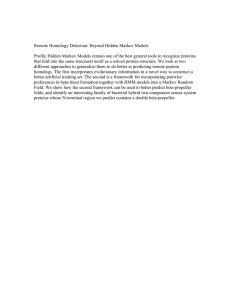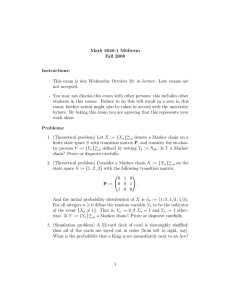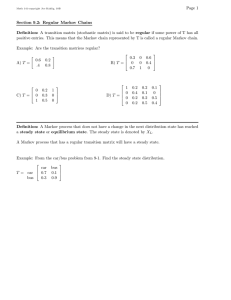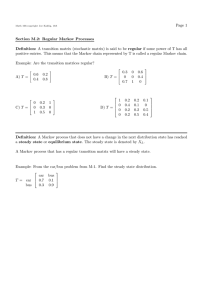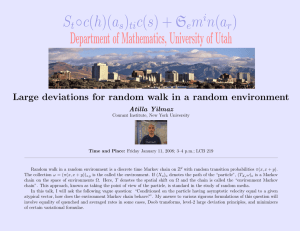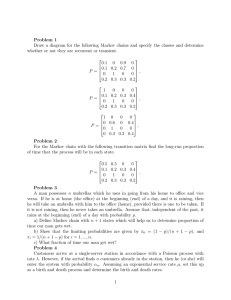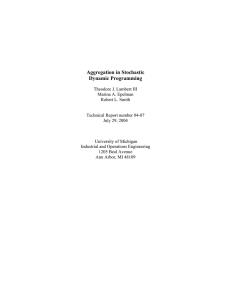Complexity DTC miniproject R.S.MacKay, Maths
advertisement
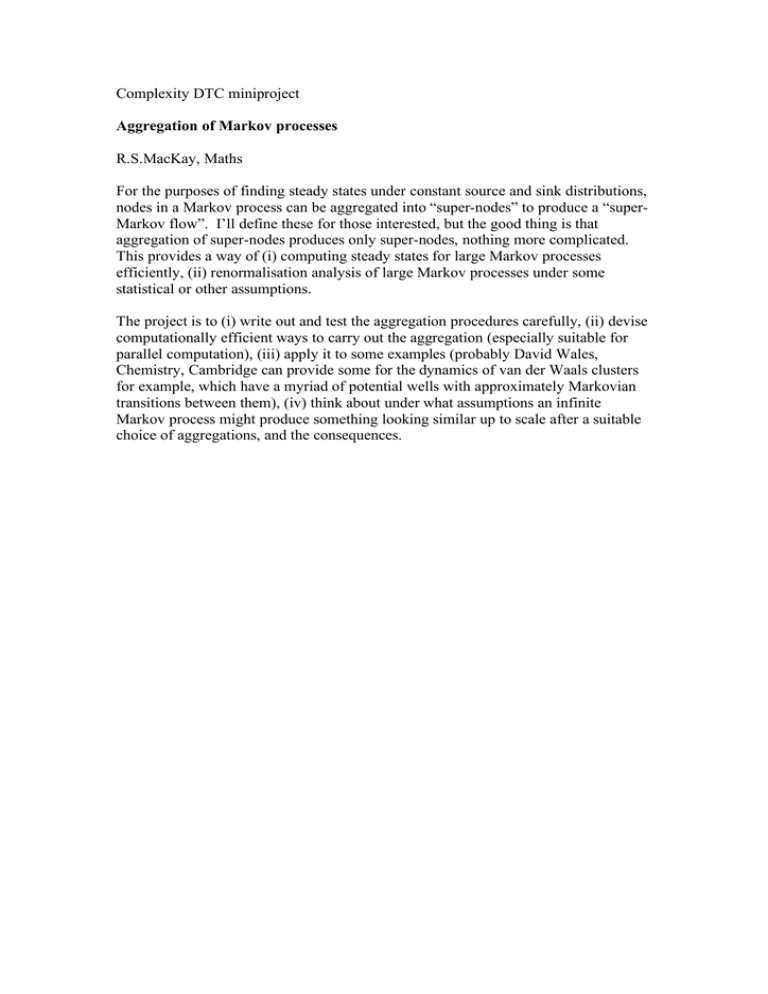
Complexity DTC miniproject Aggregation of Markov processes R.S.MacKay, Maths For the purposes of finding steady states under constant source and sink distributions, nodes in a Markov process can be aggregated into “super-nodes” to produce a “superMarkov flow”. I’ll define these for those interested, but the good thing is that aggregation of super-nodes produces only super-nodes, nothing more complicated. This provides a way of (i) computing steady states for large Markov processes efficiently, (ii) renormalisation analysis of large Markov processes under some statistical or other assumptions. The project is to (i) write out and test the aggregation procedures carefully, (ii) devise computationally efficient ways to carry out the aggregation (especially suitable for parallel computation), (iii) apply it to some examples (probably David Wales, Chemistry, Cambridge can provide some for the dynamics of van der Waals clusters for example, which have a myriad of potential wells with approximately Markovian transitions between them), (iv) think about under what assumptions an infinite Markov process might produce something looking similar up to scale after a suitable choice of aggregations, and the consequences.
